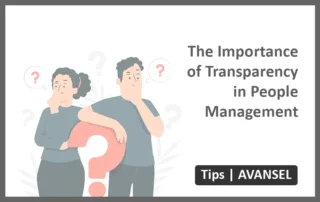What questions we can ask someone during an interview
Before thinking about what questions we can ask someone during interview to get to know them better, we must bear in mind that if we want to get to know that person, they will also want to get to know us as an organization. We must be prepared to answer questions in the same way that we expect ours to be answered. The selection of personnel is now a matter of two parties, both the company and the candidate must get to know each other make the decision to work together.
Let’s see what questions we can ask to get to know the person in front of us a little better:
1. Why do you want to change job?
Someone looking to change job does so for a reason. It may be because you want to improve one or more of your current conditions, maybe you have a schedule that does not fit with your personal life, maybe you are too far from home, perhaps you do not feel valued in your company or you wish to advance in your development as a professional.
This aspect is key, because if we do not understand the motivation for a job change, we will not know if what we can offer is really what this candidate is looking for.
2. What are your salary expectations?
Talking about salary does not have to be taboo for the interviewee or the interviewer. It is obviously a factor that must be taken into account – imagine we have a candidate that we like very much, but their salary expectations greatly exceed that which we are willing to offer, it’s better to have this discussion clearly and early in the process.
There may also be a situation of finding profiles who currently earn less than what we can offer, but if we do not present them with a salary policy that offers growth possibilities, they may reject the position because they are looking for long-term professional growth.
It is just as important that the person we are interviewing fits into our salary bands as it is that we offer them the opportunity to continue growing with us over time.
3. Let’s talk about your career, from your training up to the present
It is important to know the person sitting in front of us and how they have developed. For this reason, it is necessary to dedicate a part of the interview not only to the part of professional experience that interests us the most, but to the entire working history – including training, courses and voluntary work.
By doing this we will have a global vision of the person, of how they have evolved and adapted to the different positions they have had or how they have been trained depending on what was needed.
4. How did you end up in this project or company?
Everyone changes jobs or can easily change jobs for many reasons: better hours, being closer to home, moving from part-time to full-time, or because it’s a smart career move.
However, if we don’t ascertain these details we risking missing out on important information regarding their motivations and ambitions for change. If they can give us a normal answer that makes sense, we will get to understand that person a little more. For example, if they want to change for an improved schedule, we can see that this is a priority for the candidate. But, if we get an answer that does not seem sincere or in which we can see inconsistencies, this can lead to doubts about the profile. For this reason, it is very important to know how to read between the lines and interpret the candidate’s way of expressing themself and whether it fits with everything they are saying.
5. Do you have questions?
In exactly the same way that we want to know more about the candidate to know if they will fit in with the position and within our company, that person will also want to know more about us. For this reason, this section is very important. Why? Because we are asking them if they want to know something, we are giving them the opportunity to get to know us better – we must open up as a company and let them see all the great things we can offer.
This denotes that we are a transparent, clear and direct company that cares about people.
In addition, knowing what their doubts and concerns are will give us information about the candidate, since we will be able to assess which are the things that seem most important to them or those that we have not been able to convey well.
These questions, as we have already mentioned, seek to know the person beyond their professional career. We want to know if that person would fit in our organization, our culture, and our purpose as an organization. Sure, we want to know if they have the necessary skills and knowledge for the position, but we also want to know the person behind the resume. In the end, it is interpersonal relationships that make companies work and continue to grow.





